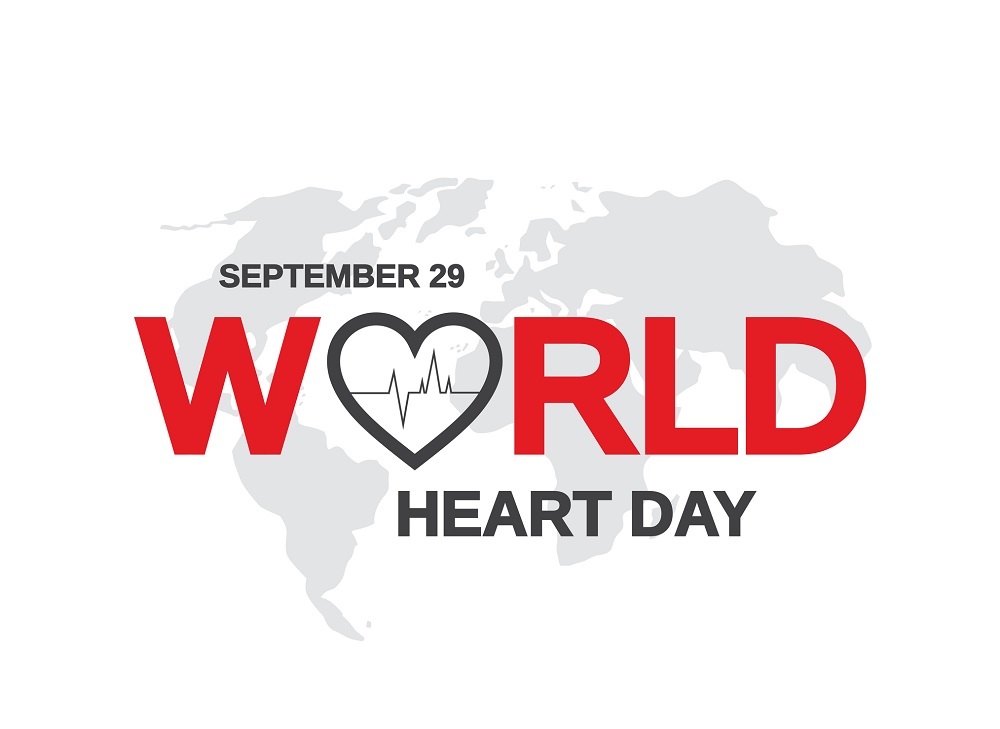 September 29th has been designated as “World Heart Day”. This observance serves to bring international attention to the dangers of cardiovascular disease. According to the World Heart Federation, over 17.3 million deaths occur each year due to cardiovascular disease. By the year 2030, it is expected that this number will rise to 23 million. This makes it the leading cause of death in the world.
September 29th has been designated as “World Heart Day”. This observance serves to bring international attention to the dangers of cardiovascular disease. According to the World Heart Federation, over 17.3 million deaths occur each year due to cardiovascular disease. By the year 2030, it is expected that this number will rise to 23 million. This makes it the leading cause of death in the world.
The most common cardiovascular diseases include coronary heart disease (heart attack) and cerebrovascular disease (stroke).
Ways to control heart disease and protect the heart:
• Keep active – a minimum of 30 minutes a day of physical activity or exercise
• Do not smoke – if you do smoke, quit and if you don’t smoke, don’t start
• Healthy eating – A healthy diet includes fresh fruit and vegetables, whole grains, lean meat and fish
• Maintain a healthy weight – keep away from food that is high in sodium and sugar or contains unsaturated fat
• Keep blood pressure under control
• Take medication as prescribed to control cholesterol, pressure, and diabetes if present
It is very important to know the warning signs of heart disease. For instance, a person who is experiencing a heart attack will often experience chest pain (fullness, squeezing, pressure), discomfort in areas of the upper body ( neck, jaw, arms, back), shortness of breath, and may also experience nausea, lightheadedness, and cold sweats. A person who is experiencing a stroke may have sudden trouble seeing, sudden confusion, a severe headache, loss of balance, trouble speaking, and sudden numbness and weakness of the face, arms and legs that is often just one-sided.
It is very important to receive a medical check-up at least once a year to ensure that your heart is healthy. If you would like to schedule an appointment with a physician at Flushing Hospital please call 718-670-5486
.
All content of this newsletter is intended for general information purposes only and is not intended or implied to be a substitute for professional medical advice, diagnosis or treatment. Please consult a medical professional before adopting any of the suggestions on this page. You must never disregard professional medical advice or delay seeking medical treatment based upon any content of this newsletter. PROMPTLY CONSULT YOUR PHYSICIAN OR CALL 911 IF YOU BELIEVE YOU HAVE A MEDICAL EMERGENCY.
